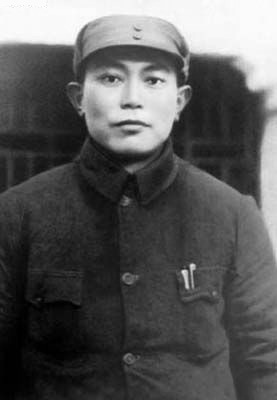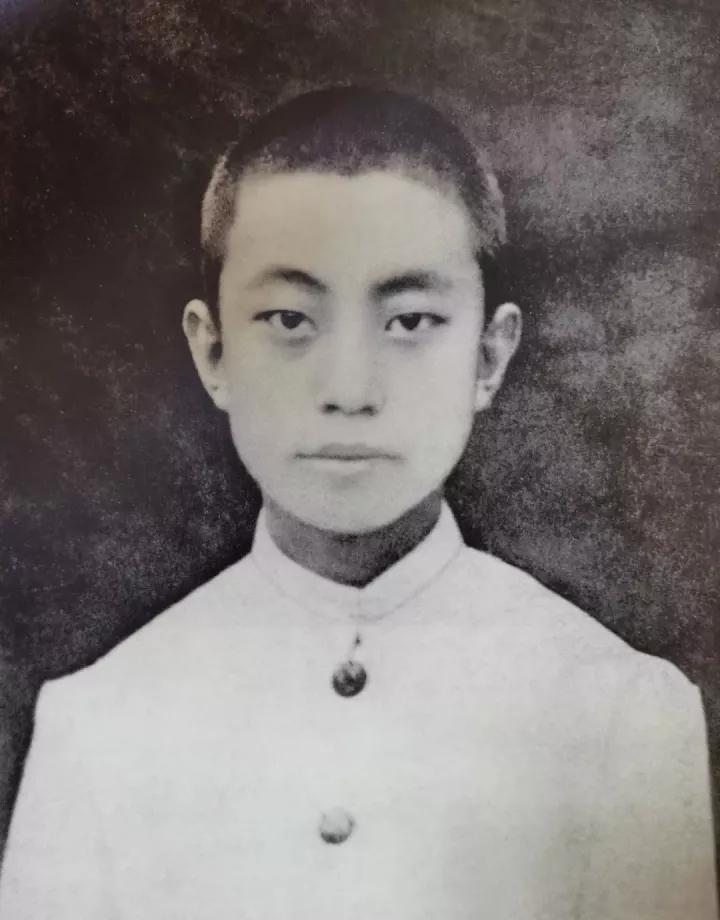|
Chen Xilian
Chen Xilian (pronounced ; 4 January 1915 – 10 June 1999) was a Chinese military officer and politician, general of the People's Liberation Army. A prominent Maoist, he held very important positions in both military and political spheres. Following acclaimed participation in many battles during both the Second Sino–Japanese War and the Chinese Civil War, Chen served as Mayor and Military Governor of Chongqing from 1949 to 1950 and Central Commander of PLA Artillery from 1950 to 1959. He then commanded the Shenyang Military Region (1959–73) and, crucially, the Beijing Military Region (1973–80). Additionally, Chen was a full member of the Politburo (1969–80) and Vice Premier (1975–80). After Mao's death, Chen was one of Hua Guofeng's most significant supporters, along with Wang Dongxing and Li Xiannian. When Deng Xiaoping gradually rose to power, Chen lost his powerful posts, but was allowed to retire without harm. Early military career and Sino–Japanese War Chen ... [...More Info...] [...Related Items...] OR: [Wikipedia] [Google] [Baidu] |
Chen (surname)
Chen () () is a common Chinese-language surname and one of the most common surnames in Asia. It is the most common surname in Taiwan (2010) and Singapore (2000). Chen is also the most common family name in Guangdong, Zhejiang, Fujian, Macau, and Hong Kong. It is the most common surname in Xiamen, the ancestral hometown of many overseas Hoklo. Chen was listed 10th in the ''Hundred Family Surnames'' poem, in the verse 馮陳褚衛 (Feng Chen Chu Wei). In Cantonese, it is usually romanized as Chan (as in Jackie Chan), most widely used by those from Hong Kong. Chan is also widely used in Macao and Malaysia. It is also sometimes spelled Chun. In many Southern Min dialects (including dialects of Hainan, Fujian, and Taiwan), the name is pronounced Tan, while in Teochew, it is pronounced Tang. In Hakka and Taishanese, the name is spelled Chin. In Wu it is pronounced Zen or Tchen. In Vietnam, this surname is written as Trần (in Quốc Ngữ) and is 2nd most common. In Thailand, t ... [...More Info...] [...Related Items...] OR: [Wikipedia] [Google] [Baidu] |
Deng Xiaoping
Deng Xiaoping (22 August 1904 – 19 February 1997) was a Chinese revolutionary leader, military commander and statesman who served as the paramount leader of the People's Republic of China (PRC) from December 1978 to November 1989. After CCP chairman Mao Zedong's death in 1976, Deng gradually rose to supreme power and led China through a series of far-reaching market-economy reforms earning him the reputation as the "Architect of Modern China". He contributed to China becoming the world's second largest economy by GDP nominal in 2010. Born in the province of Sichuan in the Qing dynasty, Deng studied and worked in France in the 1920s, where he became a follower of Marxism–Leninism and joined the Chinese Communist Party (CCP) in 1924. In early 1926, Deng travelled to Moscow to study Communist doctrines and became a political commissar for the Red Army upon returning to China. In late 1929, Deng led local Red Army uprisings in Guangxi. In 1931, he was demoted within the ... [...More Info...] [...Related Items...] OR: [Wikipedia] [Google] [Baidu] |
Li Xiannian
Li Xiannian (pronounced ; 23 June 1909 – 21 June 1992) was a Chinese Communist military and political leader, President of the People's Republic of China (''de jure'' head of state) from 1983 to 1988 under Paramount Leader Deng Xiaoping and then Chairman of the Chinese People's Political Consultative Conference from 1988 until his death. He was a full member of the Politburo from 1956 to 1987, and of its Standing Committee from 1977 to 1987.''Li Xiannian (1909–1992)'', in Christopher R. Lew, Edwin Pak-wah Leung: ''Historical Dictionary of the Chinese Civil War'', p.p. 120-121, Scarecrow Press, 2013Holley, David"Li Xiannian, Ex-President of China, Dies at 83: Old Guard: He was one of a ruling clique of ‘8 elders’ who ordered the army to repress the pro-democracy movement in 1989".''Los Angeles Times'', 23 June 1992. Li worked as an apprentice carpenter in his teenage years to support his family. He joined the Communist Party in December 1927 and became a soldier in th ... [...More Info...] [...Related Items...] OR: [Wikipedia] [Google] [Baidu] |
Wang Dongxing
Wang Dongxing (; 9 January 1916 – 21 August 2015) was a Chinese military commander and politician, famous for being the chief of Mao Zedong's personal bodyguard force, the 9th Bureau of the Ministry of Public Security (which included the ''8341 Special Regiment''). Wang held many important positions, both in the Chinese Communist Party (CCP) and the government; he was Deputy Minister of Public Security in 1955–1958 and again in 1960–1970 and notably served as CCP Vice Chairman from 1977 to 1980, under Chairman Hua Guofeng. Wang and his trusted security force played a very significant role in ending the Cultural Revolution by arresting the Gang of Four;Wang Dongxing obituary: Politician who was bodyguard to China’s former leader, Mao Zedong< ... [...More Info...] [...Related Items...] OR: [Wikipedia] [Google] [Baidu] |
Hua Guofeng
Hua Guofeng (; born Su Zhu; 16 February 1921 – 20 August 2008), alternatively spelled as Hua Kuo-feng, was a Chinese politician who served as Chairman of the Chinese Communist Party and Premier of the People's Republic of China. The designated successor of Mao Zedong, Hua held the top offices of the government, party, and the military after the deaths of Mao and Premier Zhou Enlai, but was gradually forced out of supreme power by a coalition of party leaders between December 1978 and June 1981, and subsequently retreated from the political limelight, though still remaining a member of the Central Committee until 2002. Born and raised in Jiaocheng, Shanxi, Hua was educated at the Jiaocheng County Commercial School and joined the Chinese Communist Party (CCP) in 1938, seeing action in both the Second Sino–Japanese War and the Chinese Civil War as a guerrilla fighter.Ye Yonglie, 邓小平改变中国——1978:中国命运大转折 (Deng Xiaoping Changed China-1978: China ... [...More Info...] [...Related Items...] OR: [Wikipedia] [Google] [Baidu] |
Vice Premier Of The People's Republic Of China
The vice premiers of the State Council of the People's Republic of China () are high-ranking officials under the premier and above the state councillors and ministers. Generally, the title is held by multiple individuals at any given time, with each vice-premier holding a broad portfolio of responsibilities. The first vice-premier takes over duties of the premier at the time of the latter's incapacity. The incumbent vice premiers, in order of rank, are Han Zheng, Sun Chunlan, Hu Chunhua and Liu He. The highest-ranked office holder is informally called the Senior Vice Premier or First Vice Premier () or Executive Vice Premier (), a most prominent case being Deng Xiaoping in the mid-to-late 1970s. In irregular instances, the position of a senior vice premier has been named either to indicate degree of power, nominal power, or when the premier is incapacitated and requires a full-time deputy to carry out his regular duties. Current vice-premiers List of vice-premiers Re ... [...More Info...] [...Related Items...] OR: [Wikipedia] [Google] [Baidu] |
Politburo
A politburo () or political bureau is the executive committee for communist parties. It is present in most former and existing communist states. Names The term "politburo" in English comes from the Russian ''Politbyuro'' (), itself a contraction of ''Politicheskoye byuro'' (, "Political Bureau"). The Spanish term ''Politburó'' is directly loaned from Russian, as is the German ''Politbüro''. Chinese uses a calque (), from which the Vietnamese (), and Korean ( ''Jeongchiguk'') terms derive. History The first politburo was created in Russia by the Bolshevik Party in 1917 during the Russian Revolution that occurred during that year. The first Politburo had seven members: Lenin, Zinoviev, Kamenev, Trotsky, Stalin, Sokolnikov, and Bubnov. During the 20th century, politburos were established in most Communist states. They included the politburos of the USSR, East Germany, Afghanistan, and Czechoslovakia. Several countries still have a politburo system in operation: China, North K ... [...More Info...] [...Related Items...] OR: [Wikipedia] [Google] [Baidu] |
Artillery
Artillery is a class of heavy military ranged weapons that launch munitions far beyond the range and power of infantry firearms. Early artillery development focused on the ability to breach defensive walls and fortifications during sieges, and led to heavy, fairly immobile siege engines. As technology improved, lighter, more mobile field artillery cannons developed for battlefield use. This development continues today; modern self-propelled artillery vehicles are highly mobile weapons of great versatility generally providing the largest share of an army's total firepower. Originally, the word "artillery" referred to any group of soldiers primarily armed with some form of manufactured weapon or armor. Since the introduction of gunpowder and cannon, "artillery" has largely meant cannons, and in contemporary usage, usually refers to shell-firing guns, howitzers, and mortars (collectively called ''barrel artillery'', ''cannon artillery'', ''gun artillery'', or - a layman t ... [...More Info...] [...Related Items...] OR: [Wikipedia] [Google] [Baidu] |
Chongqing
Chongqing ( or ; ; Sichuanese dialects, Sichuanese pronunciation: , Standard Mandarin pronunciation: ), Postal Romanization, alternately romanized as Chungking (), is a Direct-administered municipalities of China, municipality in Southwest China. The official abbreviation of the city, "" (), was approved by the State Council of the People's Republic of China, State Council on 18 April 1997. This abbreviation is derived from the old name of a part of the Jialing River that runs through Chongqing and feeds into the Yangtze River. Administratively, it is one of the four municipalities under the direct administration of the Government of China, central government of the People's Republic of China (the other three are Beijing, Shanghai, and Tianjin), and the only such municipality located deep inland. The municipality of Chongqing, roughly the size of Austria, includes the city of Chongqing as well as various discontiguous cities. Due to a classification technicality, Chongqing ... [...More Info...] [...Related Items...] OR: [Wikipedia] [Google] [Baidu] |
Second Sino–Japanese War
The Second Sino-Japanese War (1937–1945) or War of Resistance (Chinese term) was a military conflict that was primarily waged between the Republic of China and the Empire of Japan. The war made up the Chinese theater of the wider Pacific Theater of the Second World War. The beginning of the war is conventionally dated to the Marco Polo Bridge Incident on 7 July 1937, when a dispute between Japanese and Chinese troops in Peking escalated into a full-scale invasion. Some Chinese historians believe that the Japanese invasion of Manchuria on 18 September 1931 marks the start of the war. This full-scale war between the Chinese and the Empire of Japan is often regarded as the beginning of World War II in Asia. China fought Japan with aid from Nazi Germany, the Soviet Union, United Kingdom and the United States. After the Japanese attacks on Malaya and Pearl Harbor in 1941, the war merged with other conflicts which are generally categorized under those conflicts of World War II as ... [...More Info...] [...Related Items...] OR: [Wikipedia] [Google] [Baidu] |
Mao Zedong
Mao Zedong pronounced ; also romanised traditionally as Mao Tse-tung. (26 December 1893 – 9 September 1976), also known as Chairman Mao, was a Chinese communist revolutionary who was the founder of the People's Republic of China (PRC), which he led as the chairman of the Chinese Communist Party from the establishment of the PRC in 1949 until his death in 1976. Ideologically a Marxist–Leninist, his theories, military strategies, and political policies are collectively known as Maoism. Mao was the son of a prosperous peasant in Shaoshan, Hunan. He supported Chinese nationalism and had an anti-imperialist outlook early in his life, and was particularly influenced by the events of the Xinhai Revolution of 1911 and May Fourth Movement of 1919. He later adopted Marxism–Leninism while working at Peking University as a librarian and became a founding member of the Chinese Communist Party (CCP), leading the Autumn Harvest Uprising in 1927. During the Chinese Civil War ... [...More Info...] [...Related Items...] OR: [Wikipedia] [Google] [Baidu] |


.jpg)





